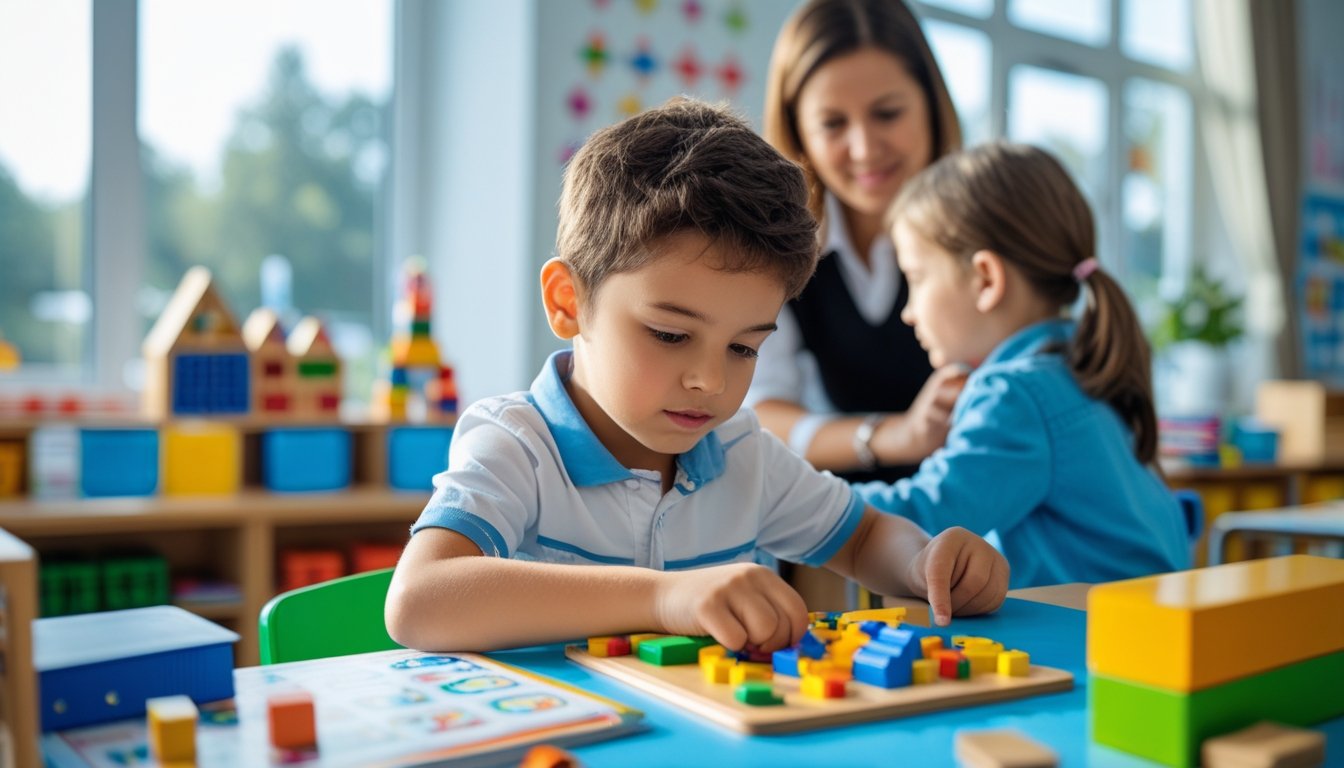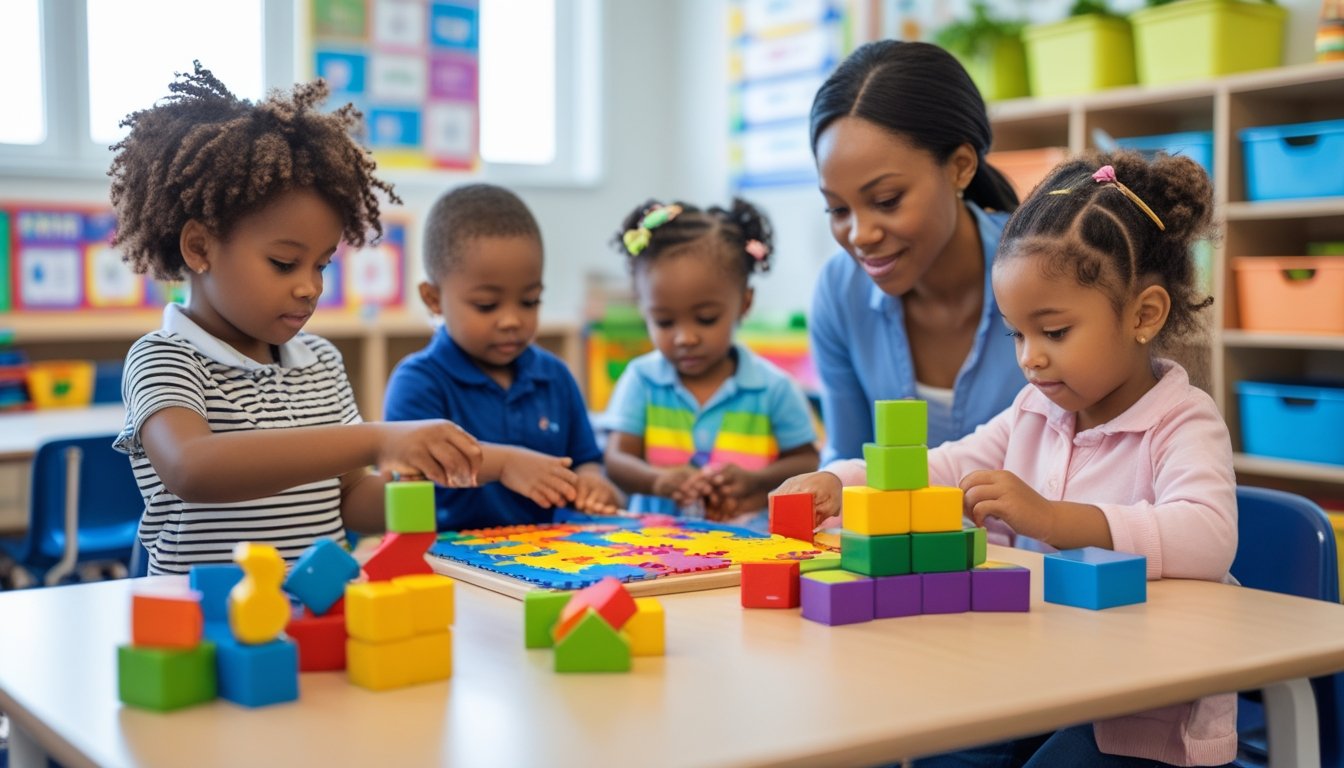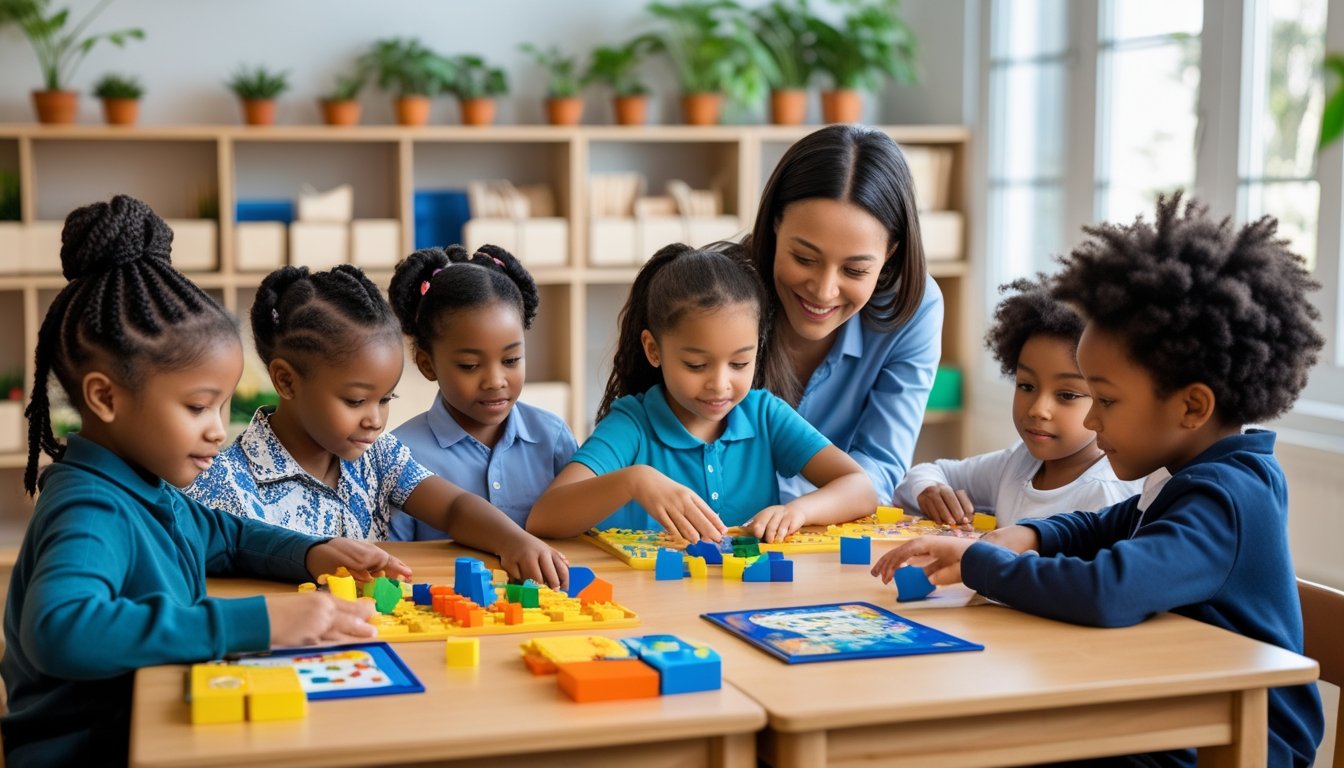Late updated: 19 May 2025 08:05
Written by:
Tips For Enhancing Children's Concentration Skills: Effective Strategies for Parents
In today's fast-paced world, enhancing children's concentration skills can seem like a daunting task, but it is both achievable and essential. Our aim is to unravel practical strategies that can support parents and educators in nurturing sharp focus and sustained attention in children. By employing simple techniques such as establishing routines, minimising distractions, and incorporating regular breaks, we can significantly bolster a child's ability to concentrate.

Concentration is not just a skill but a crucial habit that shapes a child's learning experiences and overall daily life. Through a blend of structured activities and supportive environments, we can create an atmosphere conducive to growing these skills. Introducing engaging exercises that challenge mental endurance while being enjoyable can lead to remarkable improvements in children’s attention spans.
With targeted activities and consistent support, we can guide our children towards mastering the concentration skills necessary for personal growth and success. Understanding how small changes in daily habits and learning environments can benefit concentration is key to making lasting improvements.
Key Takeaways
- Establish routines and minimise distractions for better concentration.
- Use engaging activities to target and improve attention spans.
- Consistent support and structure enhance concentration skills.
Fundamental Strategies For Enhancing Concentration
Children's concentration can be enhanced through several key strategies: establishing a supportive environment tailored to specific needs, incorporating habits that actively promote focus, and integrating physical activities into daily routines. These elements work together to create a holistic framework for boosting attentiveness.
Creating A Supportive Environment
Creating a supportive environment is crucial for improving a child's focus. We should begin by reducing distractions such as unnecessary noises or clutter.
A dedicated study space, organised and free from disturbances, helps children concentrate better. Consistency in routines also fosters focus. Establishing a regular schedule for study times, breaks, and activities provides a sense of predictability.
Additionally, using visual aids like charts and checklists can clarify expectations and keep tasks on track. Encouragement and positive reinforcement further contribute to a nurturing environment. Acknowledge efforts, no matter how small, to build confidence and motivation, laying the groundwork for improved concentration skills.
Promoting Active Focus Habits
Active focus habits are instrumental in developing children's concentration. We can encourage techniques like mindfulness and short, concentrated bursts of study followed by breaks. These practices enhance attention span and mental stamina.
Implementing simple timers can aid children in managing their time effectively. Focusing on one task at a time rather than multitasking prevents cognitive overload and improves the quality of output.
Additionally, incorporating fun and engaging activities—such as puzzles and memory games—can sharpen mental agility. These activities should aim to be challenging yet achievable to maintain interest and promote cognitive growth. Cultivating these habits consistently will solidify focus-enhancing behaviours over time.
Encouraging Physical Activity
Physical activity is a vital component in boosting concentration among children. Regular exercise invigorates the body and mind, improving overall cognitive function. We should integrate activities like yoga, dance, or sports into daily routines to break monotony and re-energise the brain.
Physical activities release endorphins that enhance mood, leading to better focus. It's also important to allow time for free play, where children can explore freely and develop problem-solving skills through natural curiosity. These activities not only enhance physical health but also contribute significantly to cognitive development, linking bodily movements with mental alertness.
Practical Activities To Improve Attention Span

Improving a child's attention span involves a combination of structured activities and playful exercises. By targeting memory enhancement, motor skill development, and understanding of specific learning needs, we can create an engaging environment conducive to focus and attentiveness.
Using Memory Games Effectively
Memory games are a powerful tool to enhance attention span. They often use repetition and recall, which in turn stimulate cognitive abilities. Picture matching, for instance, encourages children to concentrate and remember details.
Board games and card games can be adapted for different age groups. Simplicity tends to work best for young children—think Snap or Memory. For older children, games like Simon Says are excellent for improving recall and listening, demanding focused attention.
Regularly engaging in these activities can build focus. It reinforces the ability to maintain attention for extended periods, as children learn to process and retain information.
Developing Motor Skills Through Play
Motor skills development is closely linked to concentration. Activities promoting coordination contribute to a child's ability to concentrate. Ball games, for example, are excellent, as they require both physical engagement and mental focus.
Using Hand-Eye Coordination Scarves or similar tools can be beneficial. These require precision and timing. As concentration improves, so too does the child's ability to handle more complex motor tasks.
Including simple exercises like balancing and skipping can enhance body awareness. Children's focus sharpens as they work on controlling movements, directly benefiting their attention span.
Identifying And Addressing Attention Deficit Disorder
Attention Deficit Disorder (ADD) can significantly affect attention span. Recognising signs early and addressing them is crucial. Symptoms include trouble concentrating, frequent daydreaming, and impulsiveness.
Creating a structured routine can help. This predictable environment improves concentration, as it reduces distractions. Incorporating calming activities, like yoga or deep breathing exercises, can also aid focus.
For those diagnosed with ADD, professional guidance might be required. Collaborating with educational specialists and therapists ensures personalised strategies that address specific needs, ultimately enhancing the ability to concentrate.
Frequently Asked Questions

We often encounter queries about improving children's focus. Addressing these can aid both teachers and parents in fostering concentration skills effectively.
What strategies can be used to improve concentration in children during classroom activities?
Effective classroom strategies include establishing a structured environment with minimal distractions. Encouraging regular breaks through activities such as short exercises or stretches can also be beneficial.
What methods can help a 7-year-old enhance focus while at school?
For a 7-year-old, incorporating interactive and hands-on learning can maintain engagement. Games and activities that promote active participation are also useful.
In what ways can parents support the development of concentration skills for their children at home?
Parents can create a conducive study environment by setting specific times and places for study. Limiting screen time and encouraging hobbies that require focus, like puzzles or art, are also helpful.
Which dietary supplements or vitamins are known to aid in improving focus in children?
Omega-3 fatty acids and iron are often discussed for their potential to support cognitive function in children. It's important, however, to consult a healthcare provider before introducing any supplements.
How can you effectively teach a child who struggles with maintaining concentration?
For children who struggle with concentration, breaking tasks into smaller, manageable parts can be effective. The use of clear, concise instructions with immediate feedback aids learning.
Are there any natural methods to boost a child's ability to concentrate and focus?
Natural methods include ensuring the child gets adequate physical activity and sleep. Mindfulness exercises, such as breathing techniques, can also positively affect concentration abilities.
